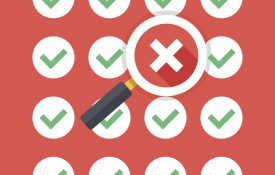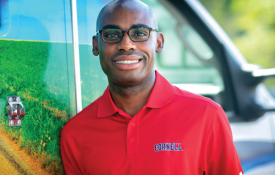-

Insights From High-Risk Fields Can Help Minimize Mistakes in the Lab
In an article published in Advances in Methods and Practices in Psychological Science, researcher Jeffrey Rouder of the University of California, Irvine and colleagues use principles drawn from high-risk fields to propose best practices for minimizing mundane mistakes in psychology labs.
-

Cigarette Craving Can Be Measured with a Squeeze
Craving is challenging to measure because it is visceral and difficult to express in words or numbers on a scale. To address this challenge, researcher Crewell and colleagues investigated the effectiveness of a nonverbal measure of craving in heavy smokers.
-
How Marginal Are ‘Marginally Significant’ p-Values?
As the research community debates whether the p-value should
be swept into the statistical dustbin, the question remains: How
are authors actually presenting p-values? -

How to Maintain Data Quality When You Can’t See Your Participants
Online data collection makes recruiting study participants faster and easier, but at what cost? Psychological scientist Jennifer Rodd of University College London outlines the steps researchers should take to manage the uncertainty inherent in remote experimentation.
-

Studying People in Their Local Environments
An RV-style mobile lab is helping Cornell University researchers, including psychological scientist Neil Lewis, Jr., study hard-to-reach populations in their home settings.
-

March Methodology Madness
Borrowing from the “March Madness” college basketball tournament in the United States, the Observer presents our annual look at methodology innovations and research practices.

